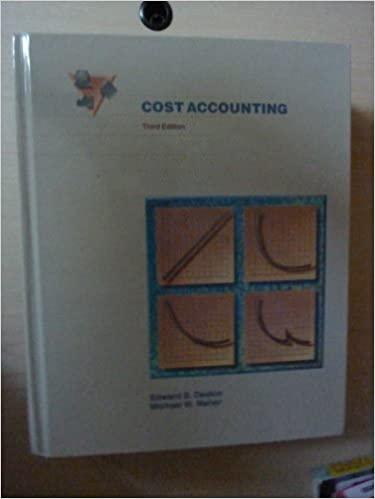Solving for UnknownsWeighted-Average Costing: For each of the following independent cases, determine the units or equivalent units
Question:
Solving for Unknowns—Weighted-Average Costing: For each of the following independent cases, determine the units or equivalent units requested (assume weighted-average):
a. There were 8,200 units in the beginning inventory that were 40 percent complete with respect to conversion costs. During the period, 7,000 units were started. There were 6,500 units in the ending inventory that were 20 percent complete with respect to conversion costs. How many units were transferred out?
b. The beginning inventory consisted of 2,000 units with a direct materials cost of $14,200. The equivalent work represented by all of the direct materials costs in the Work in Process Inventory account amounted to 9,000 units. There were 3,000 units in ending inventory that were 20 percent complete with respect to materials. The ending inventory had a direct materials cost assigned of $4,500. What was the total materials cost incurred this period?
c. The Work in Process Inventory account had a beginning balance of $1,900 for conversion costs on items in process. During the period, $18,100 in conversion costs were charged to the account. Also during the period, $19,200 in costs were transferred out. There were 400 units in the beginning inventory, and 4,800 units were transferred out during the period. How many equivalent units are in the ending inventory?
d. There were 2,100 units transferred in to the department during the period. The 3,200 units transferred out were charged to the next department at an amount that included $3,360 for direct materials costs. The ending inventory was 25 percent complete with respect to direct materials and had a cost of $630 assigned to it. How many units are in the ending inventory?
Step by Step Answer:






